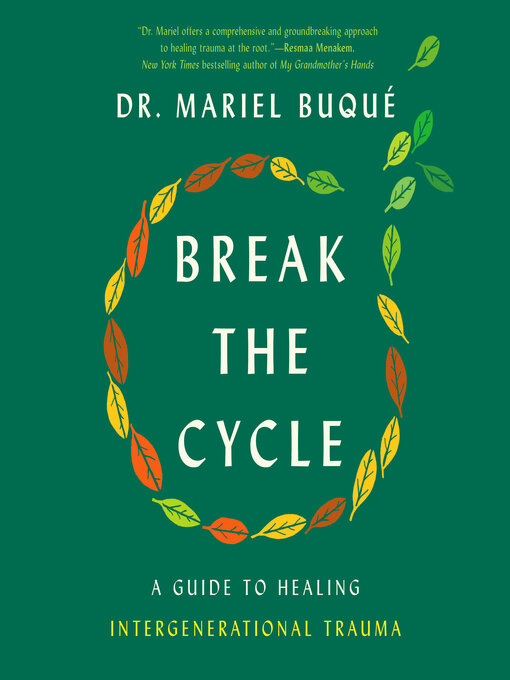- Arts & Crafts
- Fitness and Health
- Outdoor Recreation
- Biography & Memoir
- Business
- History
- All Nonfiction
- See all
A Next Big Idea Club must-read title for January 2024
The definitive, paradigm-shifting guide to healing intergenerational trauma—weaving together scientific research with practical exercises and stories from the therapy room—from Dr. Mariel Buqué, PhD, a Columbia University–trained trauma-informed psychologist and practitioner of holistic healing
From Dr. Mariel Buqué, a leading trauma psychologist, comes this groundbreaking guide to transforming intergenerational pain into intergenerational abundance. With Break the Cycle, she delivers the definitive guide to healing inherited trauma. Weaving together scientific research with practical exercises and stories from the therapy room, Dr. Buqué teaches readers how trauma is transmitted from one generation to the next and how they can break the cycle through tangible therapeutic practices, learning to pass down strength instead of pain to future generations.
When a physical wound is left unhealed, it continues to cause pain and can infect the whole body. When emotions are left unhealed, they similarly cause harm that spreads to other parts of our lives, hurting our family, friends, community members, and others. Eventually, this hurt can injure an entire lineage, metastasizing across years and generations. This is intergenerational trauma.
This trauma is why some of us become estranged from our families, why some of us are people pleasers, why some of us find ourselves in codependent relationships. This trauma can be rooted in the experiences of ancestors, who may have suffered due to unhealthy family dynamics, and it can be collective, the result of a shared experience like systemic oppression, or harmful ingrained behaviors in a culture like the acceptance of physical discipline of children, or even a natural disaster like a pandemic. These wounds are complex, impacting our minds, bodies, and spirits. Healing requires a holistic approach that has so far been absent from the field of psychology. Until now.

